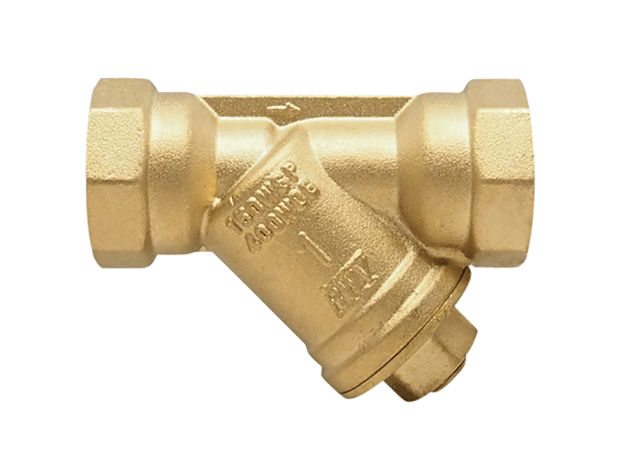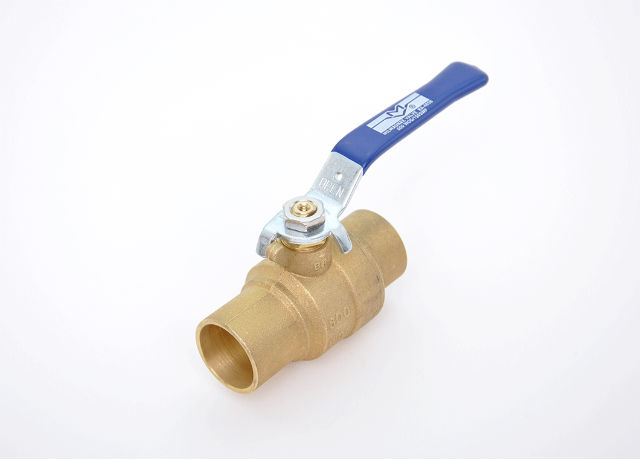Brass Valves
Brass is an ideal substance for making valves. It's lightweight yet durable, cost-effective but long-lasting. Let's take a closer look at brass valves, as well as their many applications and benefits.
What is a Brass Valve?
A brass valve, as the name suggests, is a valve made of brass. It doesn't refer to a specific type of valve, and it could be anything from a butterfly valve to a check valve. The only requirement for this category is that the tap must consist of brass. It's worth noting that brass water valves are divided into two categories. Some brass valves contain lead, while others are lead-free.
When to Use Brass Valves?
Brass is an amazing copper alloy used extensively in a variety of valve designs, configurations, and applications. While a malleable material, brass makes extremely durable fittings and valves. It can handle high temperatures, making it ideal for water and steam, and is fairly corrosion resistant, as well. It is also spark resistant, and recyclable, making the answer to the question almost obvious: whenever you can!

What Are the Common Applications of Brass Valves?
If you've only ever encountered a brass water valve, it can be difficult to imagine the sheer array of different brass valves out there. However, these valves are actually incredibly versatile and find uses in many different industries.
Let's take a look at some of the industries and uses for brass valves.
- Plumbing - Brass valves are often used in both commercial and residential plumbing since they work well for controlling the flow of water to different areas and fixtures.
- HVAC Systems - Brass valves often find use in Heating, Ventilation, and Air Conditioning (HVAC) systems, where they help to provide precise control over the various fluids and coolants used in the process.
- Industrial Processes - Many different industrial processes may use brass valves because they're durable and resistant to corrosion.
- Fire Protection Systems - Fire protection systems often use brass valves for fluid control and shutoff.
- Pneumatic Systems - Pneumatic systems often use the brass valve because brass works well for both liquids and gases, providing an airtight seal.
- Automotive Industry - In the automotive industry, the brass valve has several uses, engine cooling systems and air conditioning systems being among them.
- Laboratory Equipment - Many types of laboratory equipment may use bronze valves due to the corrosion-resistant nature of this durable metal.
What Are the Advantages of Using Brass Valves?
The brass valve has many different uses due to its qualities. They also mean that using brass valves has a range of benefits and advantages.
Let's take a closer look at how using brass valves might be advantageous.
- Like PVC, brass is highly resistant to corrosion, making brass valves useful for working with saltwater and other corrosive fluids.
- Brass is incredibly versatile, which means that brass valves can be used in an array of different applications and industries. The key is to find the right type of brass valve for your use.
- Brass offers excellent durability, even when exposed to unfavorable conditions part of the time. This means that you'll have to replace valves less frequently, saving you both time and money.
- This alloy has a high-temperature tolerance and can handle both cold and hot temperatures with ease.
- Brass fixtures and valves are generally reasonably resistant to scale and buildup. This means that you'll have to clean them less often to keep the system functioning smoothly.
Frequently Asked Questions (FAQs)
How Do I Select the Right Brass Valve for My Application?
There are a few factors to take into account while looking for the best brass valve for your application. We've put together a list of inquiries to assist you in making the best choice.
- What kind of liquids is the system going to move?
- Are there any special temperature requirements for this application?
- Which additional pipes and fittings in the system have what sizes?
- Does the size of your brass valve have to match that of the other system fittings?
- Which flow rating or pressure application is needed for your system?
- Will you be operating the valve manually, or do you need an electronic or pneumatic actuator?
You'll have a general understanding of the kind of valve required once you've responded to all of these questions. Ranging from the type and size of valve you need to whether you need to look for a pneumatic or electric actuator for your system.
How Should Brass Valves Be Maintained?
There are a few things you should enact in terms of brass valve maintenance. The first is to regularly inspect the valve for signs of wear or damage. You also need to clean the valve regularly to ensure its ongoing work. Finally, lubricate any parts requiring lubrication often to ensure that the valve doesn't cease or otherwise fail.
Where Can I Buy Brass Valves?
Buying brass valves from a manufacturer can be complicated and expensive. Instead, you can buy your brass valves right here at ValveMan. We stock an array of different brass valves and will be only too happy to help you find the right valve for your application.
Everything You Need at ValveMan
Here at ValveMan, we have everything from brass ball valves to PVC valves. Whether you need actuated or manual valves, feel free to contact us. We can help make your next plumbing repair job easy.


